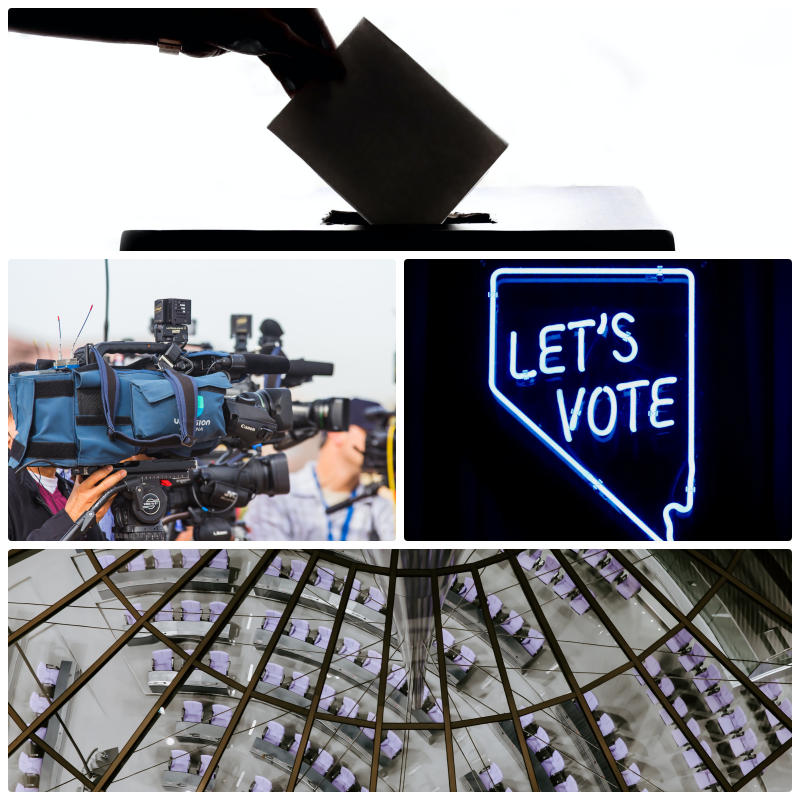Lessons in German Politics
Following the German election over the last few months has been a steep learning curve. It’s no easy thing keeping up with an election in a different language, at least for me. Spotting platitudes, spin and political waffle is slightly harder when your brain is expending so much energy just following what’s being discussed. On top of the language barriers, there’s a whole vernacular to German politics that I’ve had to get to grips with, a different voting system to comprehend and decades of political history to try and catch up on. I also have to contend with my own desire to make continuous comparisons with Britain. This is beyond unhelpful. The UK has been polarised around one topic for years and is still attempting to climb from the Brexit bunker, it’s also essentially a two party system. Here there’s a dizzying array of different political options and coalitions are common. There’s still so much I really don’t understand. For instance, when someone explained that the Bundestag may well increase its number of sitting members from 598 to 800 because of the way proportional representation works in a federal states, I could follow the logic, but I couldn’t help thinking in the back of my head “Where the hell will they get all the extra seats from?”. I still can’t shake the image of hundreds of new MPs sitting on folding chairs inside the debate chamber. Seating issues aside, there’s more that I’ve learned watching Germany prepare to go to the polls.
Plagiarism is serious
Writing a book is an important prerequisite for German politicians. It can’t be just any book though. The idea of Merkel writing romantic fiction might be fun, but usually German politicians produce tomes so dry, keeping it on your bookshelf is a legitimate fire hazard. Far be it from me to critique their writing of course, but reading reviews, it seems literary skill is a tertiary concern behind a bold title and an eye catching cover. Of course, writing a book and being a politician must be difficult. Luckily some German politicians have found an answer to this balancing act: copy and paste. Why spend hours writing a book only a handful of journalists and a sprinkling of supporters will ever read when you can just as easily pad it out with some choice paragraphs from another author? It’s not the worst crime a politician could commit, but if discovered it can quickly derail an otherwise successful candidacy. This election cycle at least two of the candidates have been accused of plagiarism, creating minor scandals during the summer. It’s common enough that there’s even “Plagiarism Hunters” scouring the works of politicians to discover possible issues. I don’t envy them.
Debate Fact Checking
One of the most enjoyable moments during the election was the televised debate between Green Party co-leader Robert Habeck and senior CDU politician and Mr. Burns tribute act, Friedrich Merz. It came midway through discussions when the topic turned to the economy. In English language political debates, this is the point where candidates regurgitate some financial buzzwords or make up an idiotic analogy, such as comparing national debt to a credit card bill. Usually these pass without much criticism, either because opponents are desperately trying to think of their own fun yet equally poor comparison or because the moderator doesn’t have time. In the contest between Habeck and Merz, something amazing happened. After debating their economic plans, the large screen between the two politicians sprang to life and an economist appeared. Sat in a reassuringly bland office, he quickly set about checking the numbers. Fact checking? In a political debate? Who’d have thunk it!
Climate as a central issue
As poll after poll has indicated, the central issue for many German voters is the climate crisis or rather the climate plans of the various competing parties. Each candidate has been pushing their climate vision with more force than in previous elections, heightened by the flooding in Nordrhein-Westfalen and the outbreak of wildfires in Greece and Turkey over the summer. What’s been less heartening is the need for media outlets to explain the climate offers of each party via the medium of personal finance, often costing the plans of each party as if it were a simple question of tax or household spending. Apparently seeing German villages being smashed by flood water and watching Greece become a burning hellscape aren’t vivid enough examples of the issue for the German electorate.
Foreign policy? What foreign policy?
In nearly every election, at some point the question of foreign policy raises its head. In the UK, this can be as simple as uttering the magic words “Special Relationship” while winking at America. It’s pretty weak, but at least it’s something. Despite other topics being analysed in microscopic detail, foreign policy seems to rate somewhere below the question “Did you write this book yourself?”. This is rather odd given the larger scale issues that Germany will face in the coming decade from a belligerent Russia and an increasingly dominant China. Even the US, usually a great friend of Germany, has proven that it can’t be entirely trusted to show global leadership. This is all without mentioning how the ongoing Brexit drama will play out. Despite these obvious challenges, foreign policy was completely missed from a recent TV debate between the three major parties. Germany has always been a reluctant global leader, now they just seem to be ignoring it completely.
Scandals mean…victory?
If you’ve been watching any German news over the last year you will surely have heard of the Wiredcard scandal. For the uninitiated, Wirecard was a German payment processor and financial services provider that was heralded as an example of Germany’s new tech industry and was given substantial support within the German government. In June 2020, to the utter surprise of everyone, it announced there was a €1.9 billion hole in it’s finances and set off a sequence of events that saw it’s CEO arrested, it’s COO disappear and numerous politicians accused, if not of financial impropriety than at least of severe negligence. SPD Chancellor candidate Olaf Scholz, as the former minister for finance, is one such politician coming under fire. Despite some serious accusations by opponents, Scholz has managed to climb to the top of the preferred list of replacements for Angela Merkel. This is impressive, given his closeness to the debacle. In Britain, eating a bacon sandwich in a weird way can ruin a perfectly good campaign. Although things may be heating up for the SPD candidate, poll numbers remain stable. I suppose Scholz is lucky he didn’t misuse a quotation in a published work or he would be in some real trouble.
Who needs media training?
Having followed British politics for many years I’ve grown accustomed to watching highly media savvy politicians dance their way through interviews, leaving frustratingly unanswered questions in their wake. Watching German politicians answering questions and interacting with the public has been eye opening for their apparent lack of media training. This is less a complaint than it is an observation, a lack of slickness is hardly to the detriment of German politics overall. However, one candidate stands out from the crowd, Christian Lindner. The FDP leader is easily recognisable due to his parties insistence on putting his face front and centre of their campaign advertising, usually in tasteful black and white, with images alternating between him hunched over a desk hard at work or wistfully looking off to the side. He would also be recognisable to many non-Germans as he seems to have assumed many of the mannerisms of English speaking politicians. The literary quotes, the easy jokes and the universal signal of the hard worker, rolled up shirt sleeves. He’s slick, very slick, which should be a warning.
Image Credit
Photo by Claudio Schwarz on Unsplash
Photo by Manny Becerra on Unsplash
Photo by Matt Chesin on Unsplash
Photo by Francesco Luca Labianca on Unsplash
Photo by Markus Winkler on Unsplash
Photo by Scott Graham on Unsplash
Photo by Karsten Würth on Unsplash
Photo by Brandi Redd on Unsplash











